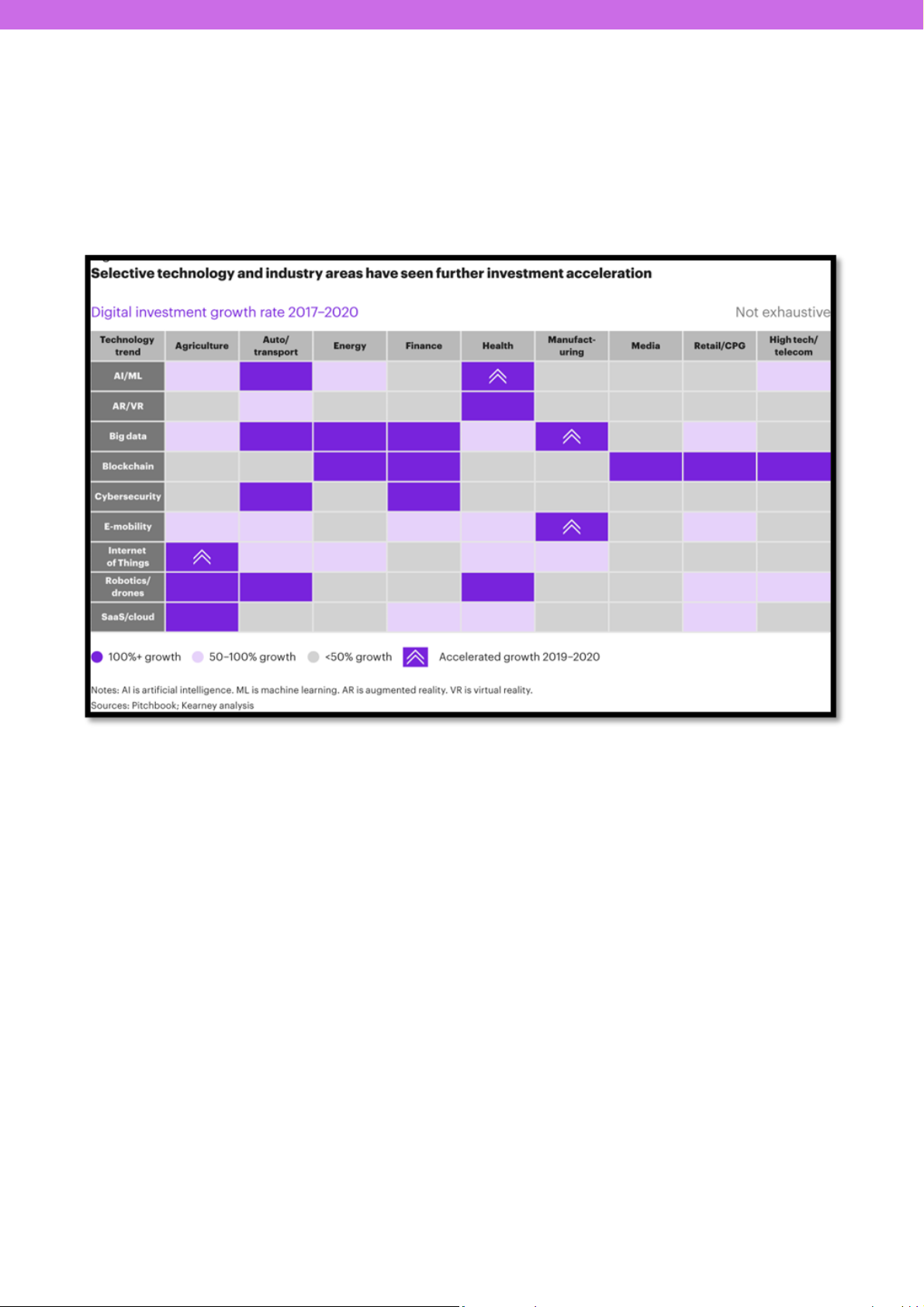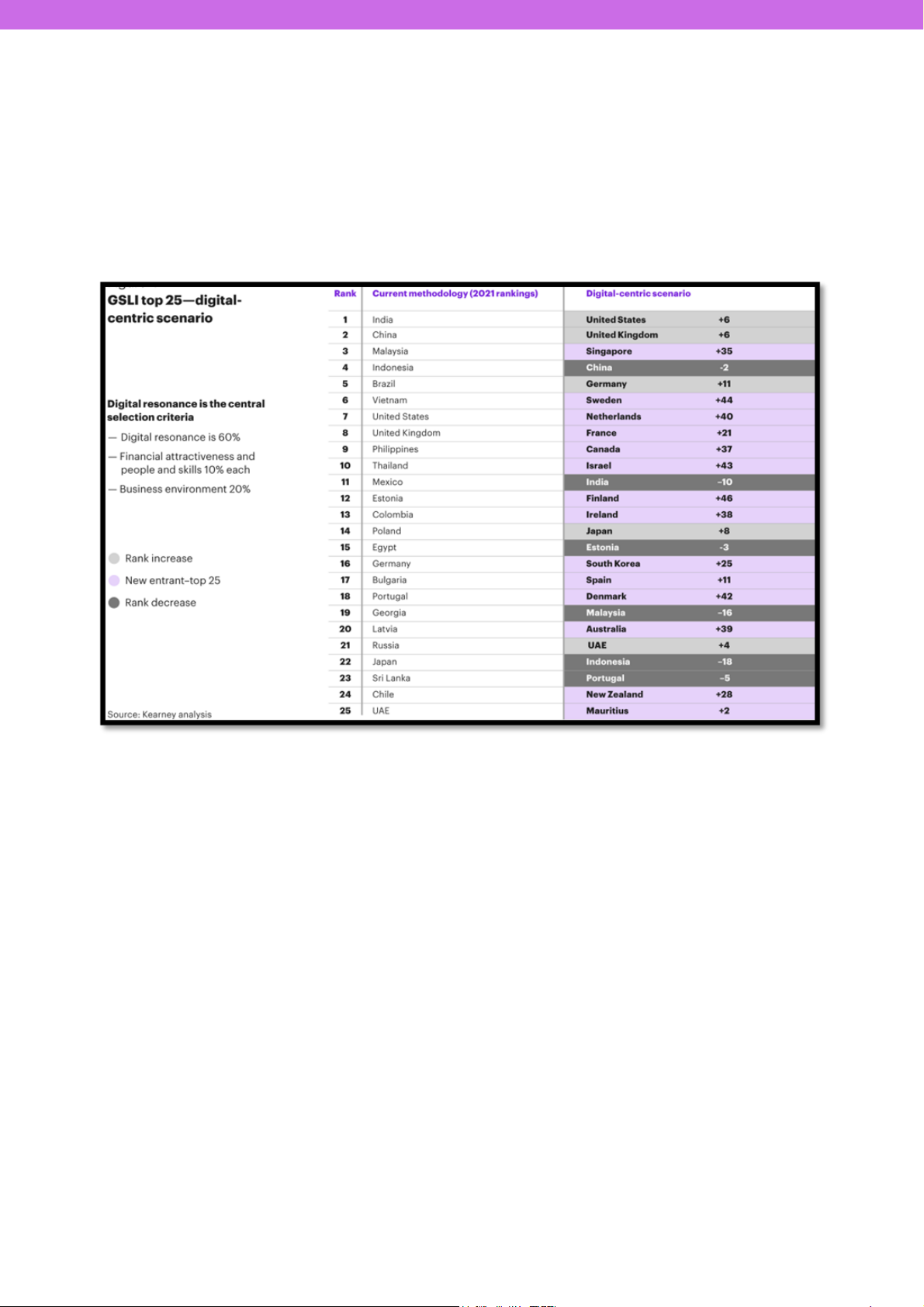Click to Edit

SHARED
SERVICE
CENTER IN SEA
THE REVOLUTION OF
20
23

The COVID-19 pandemic made the business world witness a true example of
why it is important to always have preparedness for the unexpected.
Unquestionably, the challenges of conducting day-to-day business activities
during the pandemic have broadened the horizon of business prospects for
organizations while enabling them to effectively succeed in the new normal.
Today, SSCs signify two key implications for businesses in this post-pandemic
time:
(i)Accelerated digital competencies, and
(ii)Consistency towards working in a relentlessly changing environment.
ELLWOOD CONSULTING
THE REVOLUTION OF SHARED SERVICE CENTER IN SEA
Introduction
Reportedly, the global market of Shared Service Centers (SCCs) is to
acquire growth by USD 123.64 billion between 2021 and 2026, while
maintaining the momentum at a CAGR of 17.77% [1]. Though the
model of SSCs originated in the 1980s, the global-level disruptions
caused by the recent pandemic of COVID-19 have guided significant
reforms in the model.
E

ELLWOOD CONSULTING
THE REVOLUTION OF SHARED SERVICE CENTER IN SEA
E
It is because the pandemic scenario has raised concerns about how
important it is for employees to work productively from their homes in
a seamless manner while serving the organizational objectives. Thus,
the need for building newer capabilities in the existing models of SSCs
is realized, and this justifies the projected growth of the SSCs market in
the post-pandemic scenario (17.7% CAGR during 2021-2026) [1].
At the same time, it is notified that the increasing demand for digital
competencies is not restricted to the high-tech sector only. Even
though the demand across this sector has been consistently increasing
since the pandemic (increased by 30-50%), the sectors of
manufacturing, agriculture, health, and energy acquired 100% growth
since 2020, and it is expected to greatly accelerate in the next 3-5 years
[2].
The proceeding section underpins key insights into the changing SSCs
market in SEA following COVID-19, specific to the opportunities and
challenges for market expansion in the region.
Figure 1: Accelerated growth of different sectors since the pandemic

Businesses have realized the importance of making shared service centers an
integral part of their plan to keep the operations unaffected or least affected
whether there comes some natural disaster or a pandemic scenario like
COVID-19.
Being specific to Shared Services, it is reported that the majority of the
companies have opted for the Global Business Services (GBS) approach;
focusing on talent management and cost reduction. PWC shares that 44% of
surveyed SSC companies have adopted the GBS approach while over 20%
would have adopted this global business model in the next 5 years [3].
SSCs in the Post-pandemic
business world
The pandemic of COVID-19 has left a lasting
impact on the global business world.
ELLWOOD CONSULTING
THE REVOLUTION OF SHARED SERVICE CENTER IN SEA

What makes these countries the potential landscape for global SSCs is
their bilingual talent pools (proficiency in English communication),
which makes them globally competent [4].
As per the report, India stands as the best location with Chennai, Delhi
and Hyderabad being the top cities for SSC operations. The most
significant factors are the availability of skilled talent and cost-effective
operations that make India an important landscape for global SSCs. The
top areas include financial services, IT services, business support and
contact center functions, as India offers a large talent pool across these
service sectors. For instance, renowned global entities like Shearwater
Health, Barclays, and Cresco Shared Services have already invested in
India’s Pune and in the Philippines’ Cebu. Likewise, Malaysia’s Kuala
Lumpur, Shah Alam and Cyber Jaya, Indonesia’s Jakarta, and the
Philippines’ Makati, Cebu, and Manila are the prime locations for SSCs in
SEA [4].
India, Malaysia and the
Philippines are reported
as the top countries in
Asia for being the ideal
ones for SSC operations
in the region.
ELLWOOD CONSULTING
THE REVOLUTION OF SHARED SERVICE CENTER IN SEA
Opportunities and
challenges for market
expansion in the region

However, based on the GSLI alone, India, Malaysia, Indonesia, Thailand
and Vietnam rank higher. However, these nations’ rank goes down when
the 2019 GSLI indicator of ‘digital resonance’ is taken into consideration.
The figure below illustrates this phenomenon. It is evident how India,
Malaysia, and Indonesia lost their top positions while Vietnam and
Thailand could not even make it to the top 25 [2].
ELLWOOD CONSULTING
THE REVOLUTION OF SHARED SERVICE CENTER IN SEA
Figure 2 – GSLI – digital resonance scenario [2]
Nevertheless, Malaysia manages to stand as a promising location for
SSC setups of global business organizations. 40% of PWC’s surveyed
global businesses are planning to have their SSCs set up in Malaysia.
More fascinating is the horizon of a variety of priorities among these
organizations [3]. For instance, numerous organizations are willing to
expand the horizon of their offerings with their SSCs in Malaysia.
Besides, organizations are also targeting leveraged smart technology
and automation within their existing system in place. Additional is the
motive of facilitating the digitization motives of their companies while
recognizing that their existing talent greatly lacks data analytics and
automation skills.
40% of PWC’s surveyed global businesses are
planning to have their SSCs set up in Malaysia.

Therefore, the young and digitally skilled
demographics of Malaysia greatly attract
SSC companies. Besides the availability of a
highly competent talent pool at competitive
costs, Malaysia offers a robust technological
infrastructure. In this regard, the role of the
Malaysian government is also
commendable. It is specific to the country’s
National 4IR Policy, which signifies the
government’s commitment to strategically
enhancing the nation’s digital infrastructure
through investment projects [5].
Highly competent talent pool at
competitive costs
The role of government also entails the aspect of tax incentives. Malaysia has
signed over 70 treaties on tax and incentives facilitating business around the
globe. Therefore, setting up SSCs in Malaysia is much more feasible for
organizations than ever.
Based on all the initiatives, Malaysia is anticipated to incur 6.2% five-year
compound annual growth by 2025 in the industry of global business services, i.e.,
the industry would hit around 6.7 billion USD. It is in line with the Malaysian
strategy roadmap of 2022-2027, devised and implemented by GBS Malaysia in a
strategic attempt for driving the industry forward.
At the same time, it is also stressed that Malaysia and other SEA countries who
have lost their top positions in GSLI need to attain digital resonance alongside
their financial attractiveness if they anticipate competitiveness in today’s digital-
first world. For instance, there is a need for enhancing the digital adaptability of
their legal system alongside reskilling and upskilling talents (digital skills) [2].
Malaysia is anticipated to incur 6.2%
five-year compound annual growth by 2025
ELLWOOD CONSULTING
THE REVOLUTION OF SHARED SERVICE CENTER IN SEA

Even though the SEA countries are increasingly focused on attaining more
digital resonance while attracting renowned global business entities to invest
in SSCs on their landscapes, Malaysia still holds eminence among other
countries based on its ‘business enabling environment’ or ‘doing business
index’.
As per the World Bank’s statistics, Malaysia has 12th rank over the Doing
Business Index, which supports its standing as a preferred landscape of global
business entities for their SSCs [6].
On the other hand, India, which is typically the potential landscape for global
businesses’ SSCs, is ranked 63 for its business enabling environment [7]. It
implies that Malaysia’s prospects of getting enhanced growth in the SSCs
industry are much higher. In the same manner, Thailand’s 21st rank, Vietnam’s
70th rank, and Indonesia’s 73rd rank leave significant leverage for Malaysia to
outperform in the industry [8][9][10].
SEA countries are increasingly focused on
attaining more digital resonance
ELLWOOD CONSULTING
THE REVOLUTION OF SHARED SERVICE CENTER IN SEA

[1] https://www.technavio.com/report/shared-services-market-industry-analysis
[2] https://www.kearney.com/digital/article/-/insights/the-2021-kearney-global-
services-location-index
[3] pwc.com/my/en/assets/publications/2021/global-business-services-moving-
towards-digitalisation.pdf
[4] https://www.weareams.com/whitepapers/global-shared-service-centre-
locations/
[5] https://www.mida.gov.my/mida-news/the-national-4ir-policy-at-1-
connecting-malaysia-to-the-future/
[6] https://archive.doingbusiness.org/en/data/exploreeconomies/malaysia
[7] https://archive.doingbusiness.org/en/data/exploreeconomies/india
[8]
https://www.doingbusiness.org/content/dam/doingBusiness/country/t/thailan
d/THA.pdf
[9] https://archive.doingbusiness.org/en/data/exploreeconomies/vietnam
[10] https://archive.doingbusiness.org/en/data/exploreeconomies/indonesia
Bibliography
ELLWOOD CONSULTING
THE REVOLUTION OF SHARED SERVICE CENTER IN SEA

